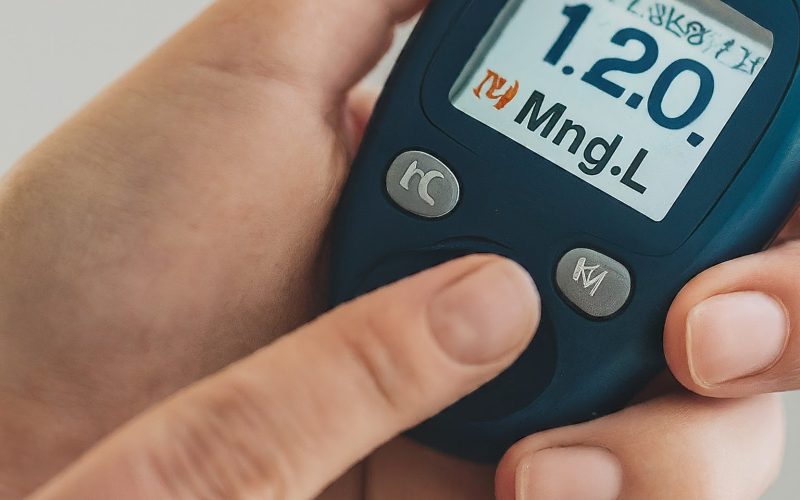Diabetes, a chronic condition characterized by high levels of blood glucose, affects millions worldwide. Over the years, advancements in medical science have dramatically improved the quality of life for those living with diabetes. The latest innovations in diabetes management are revolutionizing how patients monitor and control their blood sugar levels, offering new hope for better health outcomes. This article delves into the most recent tools and treatments that are transforming diabetes management.
Continuous Glucose Monitoring (CGM) Systems
One of the most significant innovations in diabetes management is the advent of Continuous Glucose Monitoring (CGM) systems. Unlike traditional finger-prick tests that provide a single glucose reading, CGM systems offer real-time, continuous insight into glucose levels. These devices consist of a small sensor placed under the skin, which measures glucose levels in the interstitial fluid. The data is then transmitted to a display device, such as a smartphone or a dedicated monitor.
Benefits of CGM Systems
- Real-Time Monitoring: CGM systems provide constant feedback, allowing patients to make informed decisions about their diet, exercise, and medication.
- Trend Analysis: These devices help identify patterns and trends in glucose levels, which can be crucial for adjusting treatment plans.
- Alerts and Alarms: CGM systems can alert users to dangerously high or low glucose levels, enabling timely intervention.
Artificial Pancreas Systems
Building on the technology of CGM systems, artificial pancreas systems represent a significant leap forward in diabetes management. These systems combine a CGM with an insulin pump, creating a closed-loop system that mimics the function of a healthy pancreas. The CGM continuously monitors glucose levels and communicates with the insulin pump, which automatically adjusts insulin delivery based on the readings.
Advantages of Artificial Pancreas Systems
- Automated Insulin Delivery: This reduces the burden on patients to manually calculate and administer insulin doses.
- Improved Glycemic Control: Studies have shown that artificial pancreas systems can lead to better glycemic control and reduced risk of hypoglycemia.
- Enhanced Quality of Life: By automating a significant aspect of diabetes management, these systems can greatly improve the quality of life for patients.

Smart Insulin Pens
Smart insulin pens are another innovative tool that is making diabetes management more convenient and effective. These pens are equipped with Bluetooth technology, allowing them to connect to smartphone apps that track insulin doses and provide reminders.
Key Features of Smart Insulin Pens
- Dose Tracking: These pens automatically record the time and amount of each dose, helping patients keep accurate records.
- Reminders and Alerts: The connected apps can remind patients when it’s time for their next dose and alert them if they miss a dose.
- Data Sharing: Patients can share their dosing data with healthcare providers, facilitating better-informed treatment decisions.
Advanced Insulin Formulations
Innovations in insulin formulations are also playing a crucial role in improving diabetes management. Researchers are developing new types of insulin that offer faster onset, longer duration, and more stable action profiles.
Notable Advanced Insulin Formulations
- Ultra-Rapid-Acting Insulin: These formulations begin working almost immediately after injection, making them ideal for mealtime glucose control.
- Basal Insulin Analogues: These long-acting insulins provide a stable, 24-hour glucose-lowering effect, reducing the need for multiple daily injections.
- Bi-Hormonal Insulin: Combining insulin with other hormones like glucagon can help better mimic the natural hormone fluctuations in the body, offering more balanced glucose control.

Digital Health Platforms
The rise of digital health platforms is another exciting development in diabetes management. These platforms integrate various tools and data sources to provide a comprehensive view of a patient’s health.
Benefits of Digital Health Platforms
- Holistic Management: By consolidating data from CGMs, insulin pumps, smart pens, and other devices, these platforms offer a holistic view of a patient’s condition.
- Personalized Insights: Advanced algorithms analyze the data to provide personalized insights and recommendations.
- Telemedicine Integration: Many platforms support telemedicine, enabling patients to consult with healthcare providers remotely.
Wearable Technology
Wearable technology is making significant strides in diabetes management. Devices like smartwatches and fitness trackers are now equipped with features that can help monitor glucose levels, physical activity, and other health metrics.
Advantages of Wearable Technology
- Convenience: Wearable devices are easy to use and can be worn throughout the day, providing continuous monitoring.
- Integration: These devices can integrate with other diabetes management tools, offering a seamless user experience.
- Motivation: Wearables can motivate patients to stay active and adhere to their treatment plans through gamification and real-time feedback.
Gene Therapy and Stem Cell Research
While still in the experimental stages, gene therapy and stem cell research hold promise for the future of diabetes management. These cutting-edge treatments aim to address the root causes of diabetes rather than just managing symptoms.
Potential of Gene Therapy and Stem Cell Research
- Gene Editing: Techniques like CRISPR could potentially correct genetic mutations that cause diabetes.
- Stem Cell Therapy: Researchers are exploring the use of stem cells to regenerate insulin-producing beta cells in the pancreas.
Conclusion
The landscape of diabetes management is rapidly evolving, thanks to a plethora of innovative tools and treatments. Continuous Glucose Monitoring systems, artificial pancreas systems, smart insulin pens, advanced insulin formulations, digital health platforms, wearable technology, and groundbreaking research in gene therapy and stem cell therapy are all contributing to a new era of diabetes care. These advancements not only improve glycemic control but also enhance the quality of life for millions of people living with diabetes. As technology continues to advance, the future of diabetes management looks brighter than ever.












